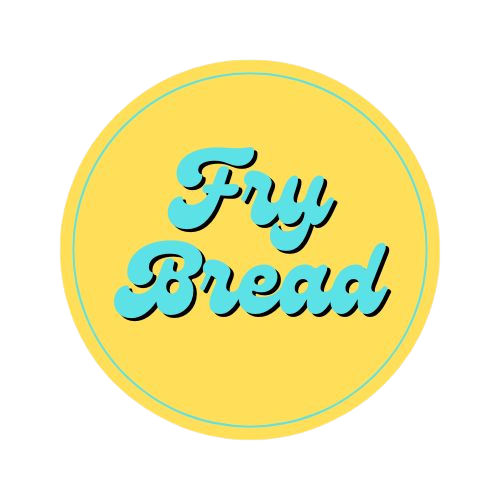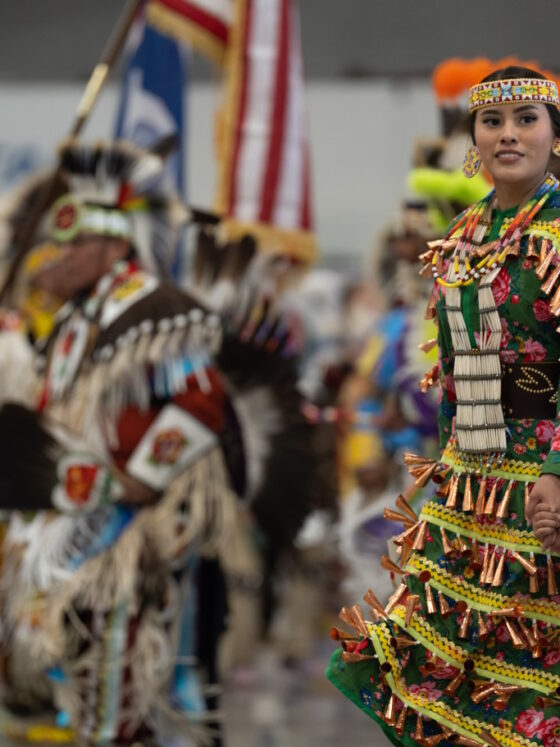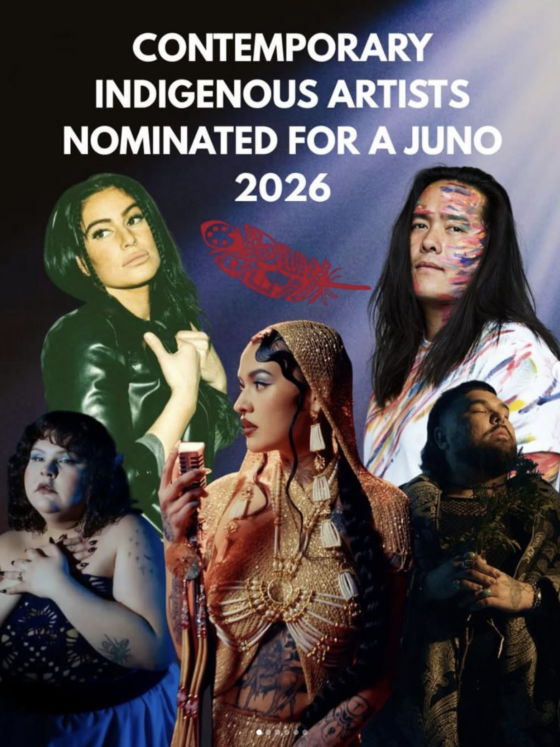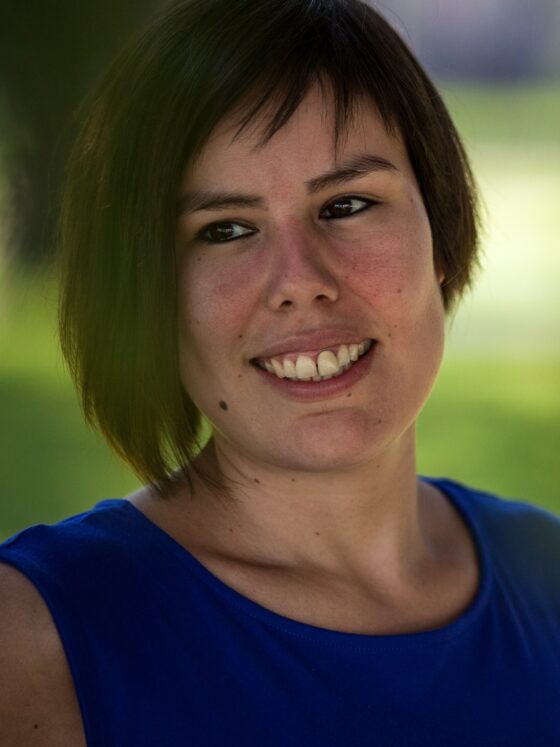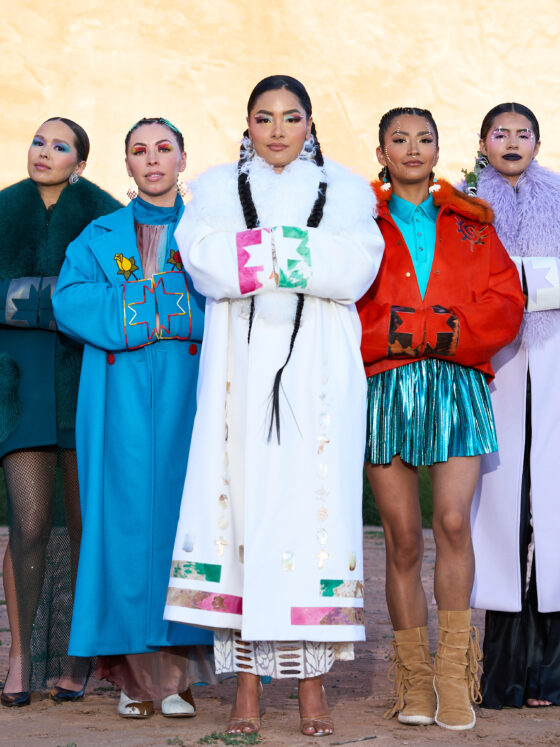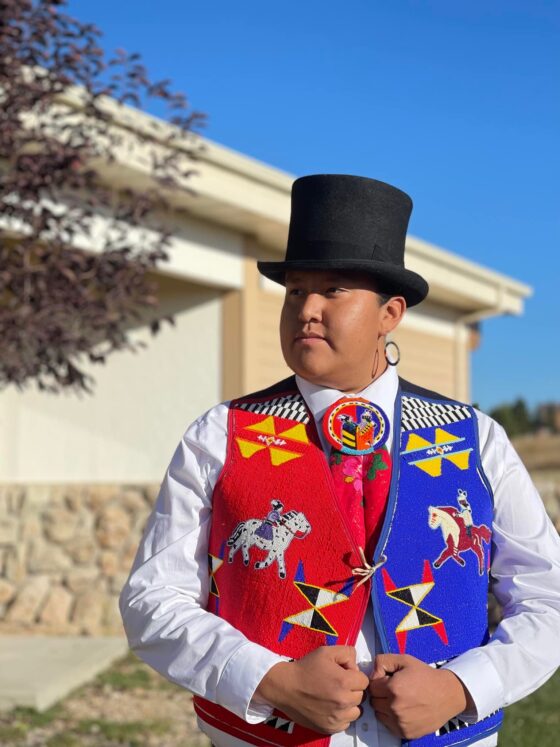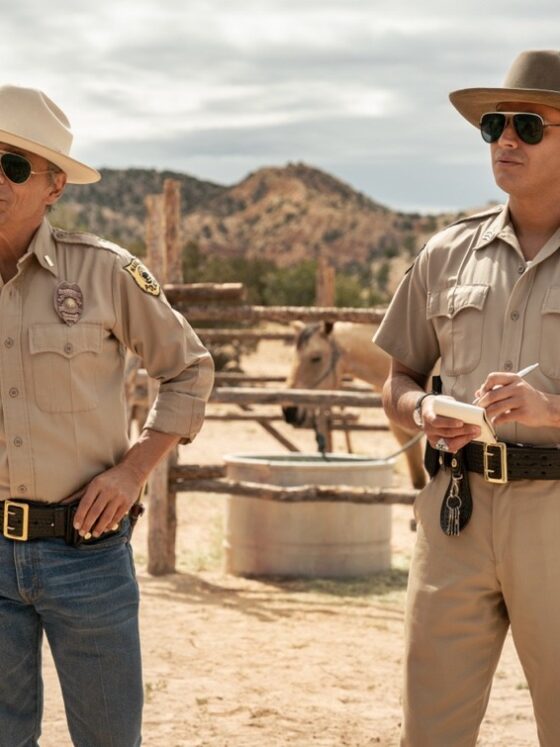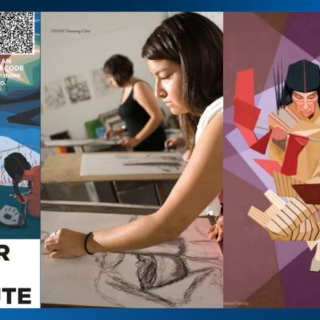Wes Studi & Kevin Willmott on The Only Good Indian & more
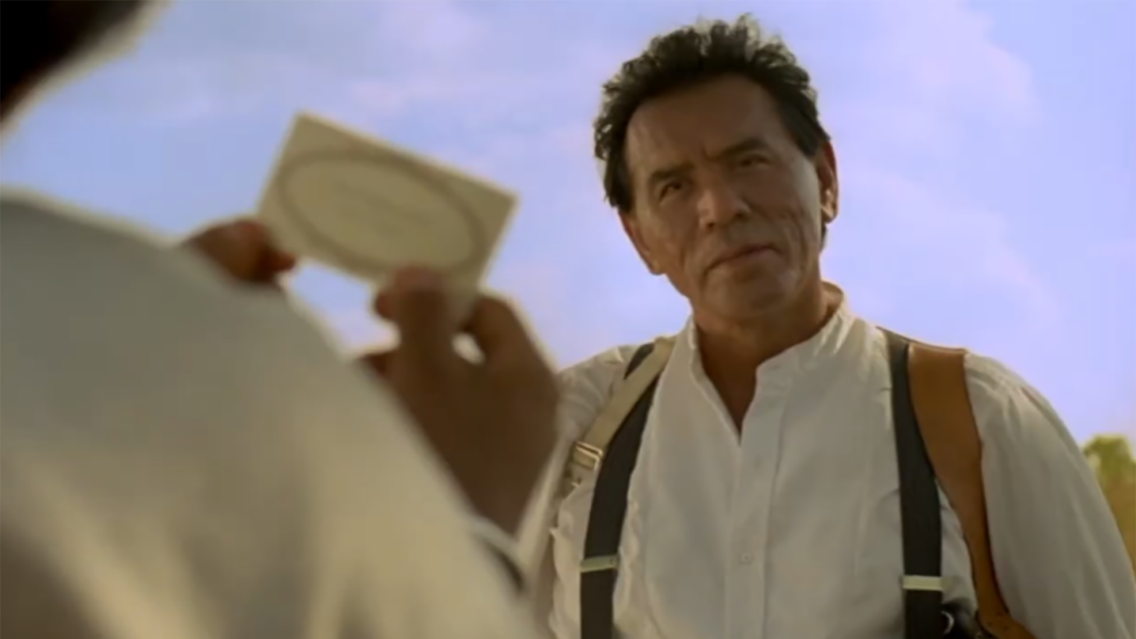
LAWRENCE, KS–The University of Kansas (KU) Film and Media Studies department hosted a four-day film festival at Liberty Hall in Lawrence, Kansas honoring Academy Award-winning director and KU professor emeritus Kevin Willmott. Fry Bread Art had the opportunity to attend on February 19 for the showing of Willmott’s 2009 film The Only Good Indian with a post-screening conversation with Willmott and the film’s star, actor Wes Studi (Cherokee), along with producer Tom Carmody and actress Laura Kirk.
Willmott and Carmody were asked, as non-Natives, why they chose to direct and produce the film.
“I think the real history of America is what saves us,” said Willmott. “I think the more you understand what really happens in American life is where you kind of gain your strength and gain your understanding and that’s what gives you the future. The tough part of the story, ugly and sad and tragic as it is, for me, it was like slavery or segregation, or any of the horrible things that America is part of. You can’t deny it. You can’t avoid it. You have to embrace it.”
Carmody, who grew up in Lawrence, wanted to give back to the Haskell community. In doing research for a film based on Haskell’s football history, he discovered Haskell’s history as a boarding school.
“And in researching that, I came across all these stories, in books or articles and whatnot about the kids running away–virtually every kid would run away,” said Carmody. “And I thought, I can’t even imagine having your kid forcibly taken, and dealing with that, and the kids always wanted to go home, and I thought, well, there’s a story there. And that’s how the script came about.”
Studi, who plays Sam Franklin in the film, spoke about his initial thoughts on the story and the role. He said that the trauma portrayed in the film is akin to Bram Stoker’s Dracula, and the idea of becoming a “white man” intrigued him. Franklin is a Cherokee man and a former Native boarding school student who rejects his Indigenous identity and reinvents himself as a bounty hunter working for white authorities.
Studi also said, “When I was asked to do this part, I thought, ‘Hey, I can almost play out my own damn life here.’ I think this is a story that needs to be told. I don’t know if Tom [Carmody] really realizes how important of a story he actually put together. And the other thing is that I got to cuss around and kind of play cool.”
Studi, when asked about his thoughts on the firings of about 20 percent of the staff at Haskell Indian Nations University, said that educating the public on what happened in the past opens doors to look at what is happening in the present.
“It’s a matter of an attack,” said Studi. “It’s not only on us as Indian people. It’s an attack on us in terms of our education, in the way that we think of our education developing for the future. And it’s related to our treaties, which are the supreme law of the land. And this is something that we simply have to impart upon everyone who perhaps doesn’t know that.”
When asked about what else he wants to accomplish in his career, Studi said he wants to continue to “work on things that I haven’t done before. Or just new things. For instance, I finally got to do a stage musical this past year. If you can imagine me dancing and singing around the stage, that happened. I got to do my bucket list, but I simply want to continue working as an activist.”
The final question of the night came from a student from Haskell Indian Nations University. She asked Studi, “Who do we look to in these times of uncertainty?”
“I share the same sentiment. I don’t know either, but I would simply say to you, yes, we’re going to have to deal with all of the divisions that we have amongst one another,” said Studi. “But the thing about it is, on a larger scale, it’s simply saying something like you, we family members, are always fighting about this or that. It is always hard to bring people together. It’s like herding cats. It’s a matter of looking for answers. I would recommend you learn a way to enjoy it, because that’s essentially what your life is going to be about: finding your own answers. Nobody is out there to give them to you. They may give you suggestions, they may give you ideas of this or that, but they’re not going to give you an answer. The answer is already there. I think you know that you’re going to find your own answers for yourself, because it’s your life, and I suggest you enjoy it.”
This story was contributed by Emma Saville.
